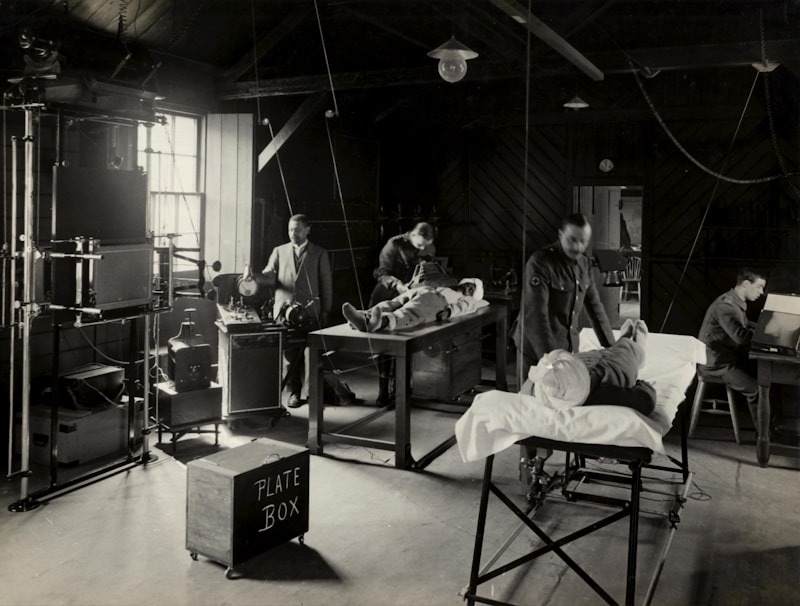Podcast
Questions and Answers
What is the primary purpose of mandatory reporting laws in nursing?
What is the primary purpose of mandatory reporting laws in nursing?
Which of the following actions would likely be considered an intentional tort in nursing?
Which of the following actions would likely be considered an intentional tort in nursing?
What defines the legal limitations of nursing practice in each state?
What defines the legal limitations of nursing practice in each state?
Under what circumstance can a nurse restrain a patient without permission?
Under what circumstance can a nurse restrain a patient without permission?
Signup and view all the answers
Which of the following explains the difference between assault and battery in nursing?
Which of the following explains the difference between assault and battery in nursing?
Signup and view all the answers
Which of the following best describes invasion of privacy in nursing?
Which of the following best describes invasion of privacy in nursing?
Signup and view all the answers
What is the intent of Good Samaritan laws in healthcare?
What is the intent of Good Samaritan laws in healthcare?
Signup and view all the answers
What must a nurse do before restraining a patient who poses a risk to themselves?
What must a nurse do before restraining a patient who poses a risk to themselves?
Signup and view all the answers
What is the definition of malpractice in the context of nursing?
What is the definition of malpractice in the context of nursing?
Signup and view all the answers
Which of the following is NOT a required element to prove defamation of character?
Which of the following is NOT a required element to prove defamation of character?
Signup and view all the answers
What distinguishes slander from libel?
What distinguishes slander from libel?
Signup and view all the answers
For a nursing malpractice claim to be valid, which of the following elements must be proven?
For a nursing malpractice claim to be valid, which of the following elements must be proven?
Signup and view all the answers
What is an essential element of minimizing malpractice risk in nursing practice?
What is an essential element of minimizing malpractice risk in nursing practice?
Signup and view all the answers
What does negligence in nursing practice refer to?
What does negligence in nursing practice refer to?
Signup and view all the answers
In the context of defamation, what must be true regarding the communication about a person?
In the context of defamation, what must be true regarding the communication about a person?
Signup and view all the answers
What can typically mitigate the risks associated with delegation in nursing?
What can typically mitigate the risks associated with delegation in nursing?
Signup and view all the answers
What must be established for causation in a malpractice lawsuit?
What must be established for causation in a malpractice lawsuit?
Signup and view all the answers
How can effective nursing practice be maintained according to outlined standards?
How can effective nursing practice be maintained according to outlined standards?
Signup and view all the answers
Study Notes
Legal Accountability in Nursing Practice
-
State Laws:
- Mandatory Reporting: State laws mandate reporting of communicable diseases, child/elder/mental health abuse/neglect (suspected or confirmed).
- Good Samaritan Laws: Protect providers from liability when giving emergency care.
- Nurse Practice Acts: Define nursing practice, scope of practice, and minimum care standards in each state.
Torts and Nursing Practice
-
Intentional Torts:
- Assault: Creating fear of physical harm (intentional threat of bodily harm, words that convey intent.)
- Battery: Unauthorized touching (physical contact without consent)
- False Imprisonment: Unlawful restraint without authorization. Restraints are permissible with authorization in case of self-harm/harm to others but authorization must be immediate and appropriate. A competent patient's request to leave against medical advice cannot be restrained.
- Invasion of Privacy: Violating a person's right to be left alone.
- Fraud: False representation of facts (false statements, falsified documents, concealed information).
-
Unintentional Torts:
-
Defamation of Character: False communication to a third party damaging reputation. Key elements: false statement, communicated to another, caused shame/ridicule, and impact on reputation, statement as a fact, not opinion.
- Slander: Spoken defamation. Truth/protected privilege (reporting abuse) are acceptable defenses.
- Libel: Written defamation.
- Negligence: Failure to exercise reasonable care. Expert witnesses determine adherence to standards.
-
Malpractice: Four elements are required to be proven by the plaintiff in a lawsuit, duty, breach of duty, causation, and damages.
- Duty: Established by nurse-patient relationship
- Breach of Duty: Nurse falls below acceptable standards.
- Causation: Nurse's actions are directly linked to patient injury
- Damages: Monetary compensation for pain/suffering, lost wages, etc (Punitive damages are possible for gross negligence, wrongful behavior)
-
Defamation of Character: False communication to a third party damaging reputation. Key elements: false statement, communicated to another, caused shame/ridicule, and impact on reputation, statement as a fact, not opinion.
-
Common Malpractice Claims:
- Failure to assess/diagnose
- Failure to communicate (missing medical authorization, delayed notification of significant changes).
- Failure to evaluate (monitor for changes, document/report changes)
Minimizing Malpractice Risk
- Documentation: Crucial risk management tool - "If not documented, it wasn't done."
- Nursing Process: Decision-making framework; assess patient for appropriate actions.
- Practice Guidelines: Adhere to established guidelines, especially for medication administration, equipment use, and safety procedures.
- Delegation: Proper delegation knowledge is essential. Scope of practice needs to be understood for those delegated to.
- Continuing Education: Maintain current knowledge and skills through continuing education.
Studying That Suits You
Use AI to generate personalized quizzes and flashcards to suit your learning preferences.
Description
This quiz explores the vital aspects of legal accountability in nursing, including state laws, Nurse Practice Acts, and intentional torts. Understand the implications of mandatory reporting, Good Samaritan laws, and the nuances of different torts that affect nursing practice. Test your knowledge on the legal standards that govern nursing responsibilities.




